Sen. Enyinnaya Abaribe is one politician that does not need much introduction in Nigeria’s political landscape. Aside being a former Deputy Governor of Abia State, the vocal activist lawmaker is on a third term representing Abia South Senatorial district in the red chamber of the National Assembly. In the Senate, he is currently the Minority Leader and has distinguished himself as a vocal voice against injustice, nepotism and marginalization of his people from the South East region of the country. In this exclusive interview with Prime Business Africa, the astute politician bares his mind on certain pertinent issues confronting the country as well as discloses what informed his recent declaration to contest Abia gubernatorial seat in 2023.
Sir, just recently, you declared your intention to govern Abia State. What informed your decision?
Yes, at any point you set out on a journey, there is always a reason for setting out on that journey. Well, where we are now, both in the country and in the state, we are at a transition period and very difficult times for everyone. And these times need an extra ordinary people. These times need decisions that will be taken by the people to make their lives much better than it is. Now we have a peculiar situation in the South Eastern part of the country both with the agitations here and with the difficulties that we are seeing over the escalating violence and the general insecurity that has suddenly enveloped us. So we think that it is clearly a sign that we don’t have the right type of leadership in the South Eastern part and for each state in the South East, we need to take back our state. We need to now provide for our people the type of leadership that will make them understand that they are being cared for within the entity called Nigeria. And we don’t think that these times are times that need just the regular type of leadership. These times need people who have exemplified what it takes to lead Ndigbo in Nigeria.
Join our WhatsApp ChannelAre you in any way saying that the crop of leaders we have now in the South East including the governors have not offered the type of leadership needed to achieve development and combat insecurity in the region?
No, what I am saying is that every epoc needs a different type of leader. This epoc is starting from 2023 because it is a transition year and a transition time for us as the Igbos. By the time the present governors were elected, we don’t have the same challenges that we have now. The past eight years of APC government has brought up new challenges that we have to confront and we are not going to confront them with the same type of leadership that we have now and what it means and what I am saying in effect is that new times will necessarily need a new type of leadership.
Some people have alleged that your decision to join the guber race was on the premise that your brother, the incumbent governor, Okezie Ikpezu has not really performed well, particularly in areas of infrastructure and human capital development. How true is that?
No. It has nothing to do with that. I just told you that these are very very tasty times for all of us and if it is that tasty times for all of us in Nigeria, it is also very tasty times for those of us in the South East. It means that these times needs the type of leadership that people trust. The type of leadership that people would look up to and I think that having exhibited at the national stage the type of leadership that Ndigbo want, that is the reason why our people are desirous of me coming to take over the leadership of this state.
There is this controversy over the zoning of the governorship seat in Abia State. Some have said that there is no reason for you to have declared your intention whereas the incumbent is your brother and he is about to complete eight years on the seat. What is your reaction to this?
I don’t have a problem with that. The problem we have is that assuming, without conceding that we are doing zoning, are you going to do it clockwise or anti clockwise? Did anybody sit down to say it will go clockwise or anti clockwise. And what we have in Abia is the fact and these are incontrovertible facts that every zone in Abia State has for whatever reason tasted power for eight years each. So what it means is that the type of zoning that we have to do now will no longer be a zoning based on geographical basis. It will be zoning that will be based on credibility, capacity and integrity. It will be zoning based on the person who can lead PDP to victory. So now that all parts of Abia has tasted power, I do not think that by the time we started in 1999 because I was part of the elections in 1999, nobody sat down to say it is going to start from here or there. By the time we started in 1999, it was let the best man for PDP win which we did. Now, having gone full circle, I think the best way to start again is to go back to 1999 where the best man in PDP will also win.
Are you also translating this idea to the national level where there is a clamour on zoning and some people insisting that someone from the Southeast region should be given the opportunity to rule the country?
At the national level, we have six zones and out of the six zones, the Southeast has never had it. So these are different scenarios. What we have at the national level is quite different from what we have at the state level. So if all the six zones have gone, we will also say let the best man win. So as it is now at the national level, the South East has never had a chance but at the state level, everybody has had the chance.
So are you concerned by the recent decision of the PDP hierarchy to throw the party ticket open for all zones in view of the agitations?
Well, I think just a day before yesterday (Sunday, April 10, 2022), we have been consulting among ourselves and among all the presidential aspirants including the ones from the Southeast. As the Minority Leader of the senate, I have to make the opportunity for them to come and speak with the minority caucus of the party. So, the Southeast aspirants have come to meet the minority caucus. Senator Pius Anyim came first, followed by Mazi Sam Ohuabunwa and then followed by Mr. Peter Obi. The fourth PDP aspirant from the Southeast, Mr. Nwachukwu Anaekwenze, I am still talking to him to make the opportunity for him to come and meet the caucus.
But beyond that, what we all have resolved is that for those of us from the Southeast, we should assist our aspirants to ensure that the party considers the South East as one of those zones that has not had a taste of the Presidency and, therefore, consider us worthy for the seat.
You have been a vocal voice in the Senate and someone who has been termed a pro-Biafra activist. How have you been able to contend with your northern colleagues and those who do not share the same thoughts as you?
I need to correct that impression. I am not a pro-Biafra activist.
But once one asked for a strong supporter of Biafra from that end, your name comes first.
Yes, it is because people don’t take time to really listen. I have said and I have been a very ardent supporter of one thing only. And that is that you can not treat people within the same country, with the same rights as any other people unequally. That has been what I have said.
Southeast has been treated unequally and anything that concerns the South East is treated in a different manner. And I have openly challenged the federal government under the APC for using nepotism as a weapon and it is this weaponization of nepotism that has continually inflamed the agitations of the youths in South East. And when people don’t have anywhere else to go, what they do is resort to violence or anti-democratic behaviours. And my colleagues surprisingly overwhelmingly voted me in as the Minority Leader; when I say overwhelmingly, I mean from all parts of Nigeria, including those from the North-West, Northeast, North Central, and, of course, from all the Southern parts.
For you to get that kind of massive support from everywhere, what it means is that they believe and they know that what you are saying is in the best interest of everybody. So, I do not have any problem with my colleagues, because what I tell them and what they know is that we are talking about justice; and, if you are talking about justice, it affects everybody. And it affects them too. They themselves sometimes may be seen as if they support the government in power but they are doing it because of the peculiar considerations within their areas. But if you listen to them, you will also see that they believe in what I was screaming and shouting about from the time this government came into place in 2015.
I screamed and shouted from late 2015 to a point in 2017 when I had to call for the resignation of Mr. President because of the incessant killings that were going on within the country. It was a signpost to something much more dangerous.
At the time we were saying all these, there were no problems in Niger State. Today, more than 390 communities in Niger State have been sacked. As of the time we were shouting in 2017, it was mainly Benue and Plateau States, that was the time they did Agatu killings and so forth.
But today, you have seen that it has encompassed us and it has moved from that to the whole of the North West. We have problems in Zamfara, we have problems in Sokoto, we have problems in Kebi, we have problems all the way down to Niger and, of course, it went to South West to part of Ondo and part of Oyo State which also led to the agitation in the South West. So, it could have been that we were much more prophetic than we would have liked to be because what we said at that time was that if we do not tackle this problem, it will just continue to fester.
Now, just about a couple of weeks ago, we had the train attack in Kaduna and the kidnappings of people and all the eye witness accounts from that incident have always been that these are young men who do not speak the Nigerian version of Fulani people. That they are people who have come from outside and this was what we continued to say from 2017 till now.
We are talking about five years down the road that we started saying and asking President Buhari, look these people who are coming and you are telling us that they are fallout from problems in Libya and our neighbours in Niger and all that. You could have managed and handled the problem at that time if you were committed, but because we also continued saying that you can not leave the security of this country in the hands of a particular group of people, a particular religion, the end effect will take us in a way that we will not like and that is what we are seeing today.
The Ohanaeze recently said that the continued detention of Nnamdi Kanu is needless and few days ago, the youth wing of the body opined that the court trials can not proffer solution to his case. What is your take on that?
From the time that we as the Southeast caucus in the National Assembly intervened on the matter of Nnamdi Kanu and his detention and I signed the bail for him, we have always felt that it can not be resolved in any legal way. Because the basis for any resolution of a matter means that you must take things in equal measure. We have had Fulani herdsmen killing people all over the country. That was what we said at that time and you never did anything about it as a government and then despite all the shouts from the people and all they were doing, what APC Government did was to look for one reason or the other to exonerate people who were committing murder and mayhem. But from the time Nnamdi Kanu and his people started waving flags and shouting Biafra, your reaction was to immediately go to court and proscribe them as a terrorist organization so that they can be trialed in a different manner. And so that you will have a reason to kill and destroy them. It is this unequal treatment that I complained and continued to shout about.
But when you go beyond that and coming to the fact of what the government ought to do, The government is not bereft of advice on what to do. We have gone as a caucus to talk to them. I have been part of two delegations to Mr. President and every time we met with Mr. President, we have always reiterated the same thing and that has been that it will be necessary for us to explore any other means to resolve the issue rather than say let us go through the legal route. So, no matter how we slice and dice it, we are going to come back to the same thing, and that same thing is that we have to sit down and discuss the issue and apply a political solution.
What is your position on the demand for restructuring?
Restructuring for me is simply that the Federal Government being too unwieldy, that it is necessary for certain things to be left for both the states and local governments to do. Secondly, the Federal Government being the concentration of power at the center, being so much, it has also led to undue efforts by everybody to seize the center and that leads to far more acrimony because if the center is no longer as lucrative as it supposed to be, then nobody is going to go there. And what we said about restructuring, you are going to do fiscal restructuring in which case the resources that go to the Federal Government and the state, we have to change the revenue formula.
The Federal Government can not take 52 percent of the revenue and then leave the state and the local government to take 48 percent. Two, we also believe that people have to contribute to the common wealth. The reason why there is so much effort to seize the center and keep it there is no effort being made by certain component parts of this country to contribute.
So, when you become dependent because you are not contributing, what now happens is that you always want to maintain the status quo and that will continue to cause problems. And because we are a monoculture, everybody depends on that monoculture and no effort is made to diversify our resources, now we are falling into what is called oil trap and you can see the effects on the country.
Right now the country is gradually dying and we have now gotten to the situation where as early as 2007, Nigeria had gone out of the debt trap because we paid up all our debts in the country and became a debt-free nation under the PDP, has now under the APC gotten to an anomalous situation where we have to borrow to pay the debt that we owe. In other words, we are owing, we can’t pay, so we borrow more to pay the one we are owing. I mean for a rich and resourceful country like Nigeria, a government that has managed us into this type of unfortunate situation can not be said to know what they are doing.
I think that the unfortunate thing is that we kind of foresaw this and we spoke about it but we were cheated out of it.
Aside assuming that APC is a failed government, 2023 is around the corner, and some Nigerians are looking up to other means to salvage the country, can you give a view of the type of leadership and government PDP will offer, considering that the APC itself has ciontinually accused the opposition of having for 16 years prepared the ground for the country’s failure?
I think that the type of leadership that Nigeria needs in 2023 is a leadership that is counter to the leadership of APC that has led us to this point. It has to be a leadership that is very prudent. It has to be a leadership that has economic management potentials which they can use to be able to turn our fortunes around. And it has to be a leadership that will do what the adage says, “if you are in a pit, you stop digging.” So we are in a debt pit today and we continue to dig and dig further. So you just continue to sink yourself into a bigger debt trap or pit and I don’t think that is in the interest of anyone here.
On lighter note, some of your supporters felt disappointed that you have the capacity and credibility to aspire to rule the country but you choose to settle for Abia State governor. Do you have any answer for them?
(Laughs) Well, it is because we have an adage that says, “charity begins at home.” You can not have the potentials and want to go to the center when your state is not in the best position. When you want to go to the center, you use your state as a model. I do not think that I can (laughs), also on a lighter note, use Abia as a model to what you are going to do at the center (laughs).
Sir, how best do you think we can address the incessant killings cum the security situation in the Southeast region, being perpetrated by the said ‘unknown gunmen,’ and allegedly members of the ESN; and do you also think the state governors have done their very best in this regard?
When people trust their leaders, they will always do the right thing. What is there in what is going on today is that some persons have hijacked the agitations here and turned it into a criminal enterprise. And when you turn it into a criminal enterprise, then everybody suffers for it.
So, the first thing to do if you want to deal with the matter is to identify who is who because, at the moment, there is a very opaque and humongous set of people. Nobody knows who is doing what and who is doing that. It is not for lack of information.
The state governors, no matter how you look at them, you will also have to agree that they are handicapped in a way; handicapped, in the sense that they do not control the levers and the usage of violence. That is the Federal Government’s responsibility. And so because it is the Federal Government’s responsibility, it is easier for the Federal Government to work with the state governments and resolve this issues. Also, some of the states will not want to be seen to be in antagonism with the Federal Government.
But what we recommend for the state governments in the Southeast is to borrow a leaf from the state governments in the South West, who irrespective of their political inclinations came together and worked together and set up Amotekun and it seems to have helped to calm down what is going on in the South West.
But the situation here, you will no longer know whether the operatives in South East, the Ebubeagu and all are working in a way that we can see visible results. It is something that we do not find very comfortable with. We do not think that you can set up a security outfit and there is no visible results. At least, for the Amotekun, you can see it and all of them are collectively part of it. So it behooves the type of leadership we have in the Southeast that everybody has to come together because this is a general thing. What is going on now is that we are being de-industrialized, people no longer feel safe here, which means that doing business here is also difficult.
Meanwhile, we are business people who expect that people from all over West Africa and even beyond should come here, do business and go without having any problems. So, when it doesn’t work that way, we all loose.
Do you think the current security situation has called for creation of State Police as being canvassed?
Yes. Initially I was against it because at the time I was the Deputy Governor here, I would not have accepted it because it was going to have been used in a different way for political ends. But I think that the greater good of the people should be beyond our own individual problems or whatever that we have within state. And because it is for the public good, I think it is necessary. Because I do not think at the moment that the resolution of the problem is being tackled in the manner in which it should be tackled. If the Federal Government-owned police outfit does not do what is necessary, it would have been easier for the state outfits to tackle part of these problems being embedded in the state, being part of the community, having the intelligence that beyond what we have, probably, we would have tackled the issues better.
What is your current relationship with your former boss, the former governor and your colleague in the senate, Sen Orji Uzor Kalu?
(Laughs) We have very good relationship. He is the Chief Whip and I am the Minority Leader. We meet every morning that we sit. We meet when we do leadership meetings and I go to his house and he comes to my place. We are playing politics. Though he is in another party and I am on my own. Honestly we do not have any issues in our relationship.
Do you have consent of the incumbent governor who supposedly is leader of the PDP in Abia State before you declared your intention to contest for governorship in 2023?
Well, let me say it this way. The decision to run for the Governor is entirely mine. The decisions that I am making are mine and that I don’t need any body’s consent.
How do you rate your chances of winning the party primaries and the main election?
(Laughs). I do not think that anybody has the kind of chance that I have. Who? Who is the person in Abia State today who will be able to walk on the streets of Aba as a government person without security. I am the only person that can do it. Who is the person in PDP today in the Southeast that can deliver PDP votes to PDP as a national party for the Southeast that is not me?
In fact, I enjoy popularity in other surrounding states than Abia State where I come from. So when the matter of who can do it comes, it should be the other way round, who else has the type of qualities that I have? Who else because you x-ray other aspirants and ask yourself one simple question, can the person go to Ariaria Market and speak to them without security? Not a single one. (laughs)
There are efforts to ensure that PDP reclaims power both at the federal and state levels. What is your advice to your party faithful on how best to achieve that?
My advice is simple. In 2015, PDP had 22 states and because PDP made the big mistake by assuming that the governors will deliver votes in their states, we lost both the presidency and 12 states. We now ended up having 10 or so and then later I think we got one or two back in the court.
PDP had a self-inflicted wound on itself because they let some people play god. And when those people played gods, they lost everywhere. We lost in Benue, it took Ortom, after having problems to come back. And when he was on Television the other day, he said it. He said this was what happened. We lost in so many states. We lost because we refused to let the people make the decision.
So if we as PDP want to win today, we will have to go back to the basis and make it actually the Peoples Democratic Party and let the will of the people prevail. If they don’t, we will simply consign ourselves, the state, the country, Nigeria to another excruciating APC governance. APC has already shown us what they could do and it took us from A to Z. And if we don’t take it back to A where we are coming from, I don’t know from Z, where else we are going to go because our people have this saying that a snake must beget a similar offspring.
So APC government will also produce another APC government that is even worse than the one that it has now. You can see from the decision they have taken in its recent convention; from the Chairmanship that they simply shouted on everybody to step down and brought in somebody who has the same type of anachronistic ideas like the incumbent president. We will only be wallowing in darkness in Nigeria.
So, PDP has everything going for it and should not in any way repeat its past mistakes. Let the will of the people prevail in all things.
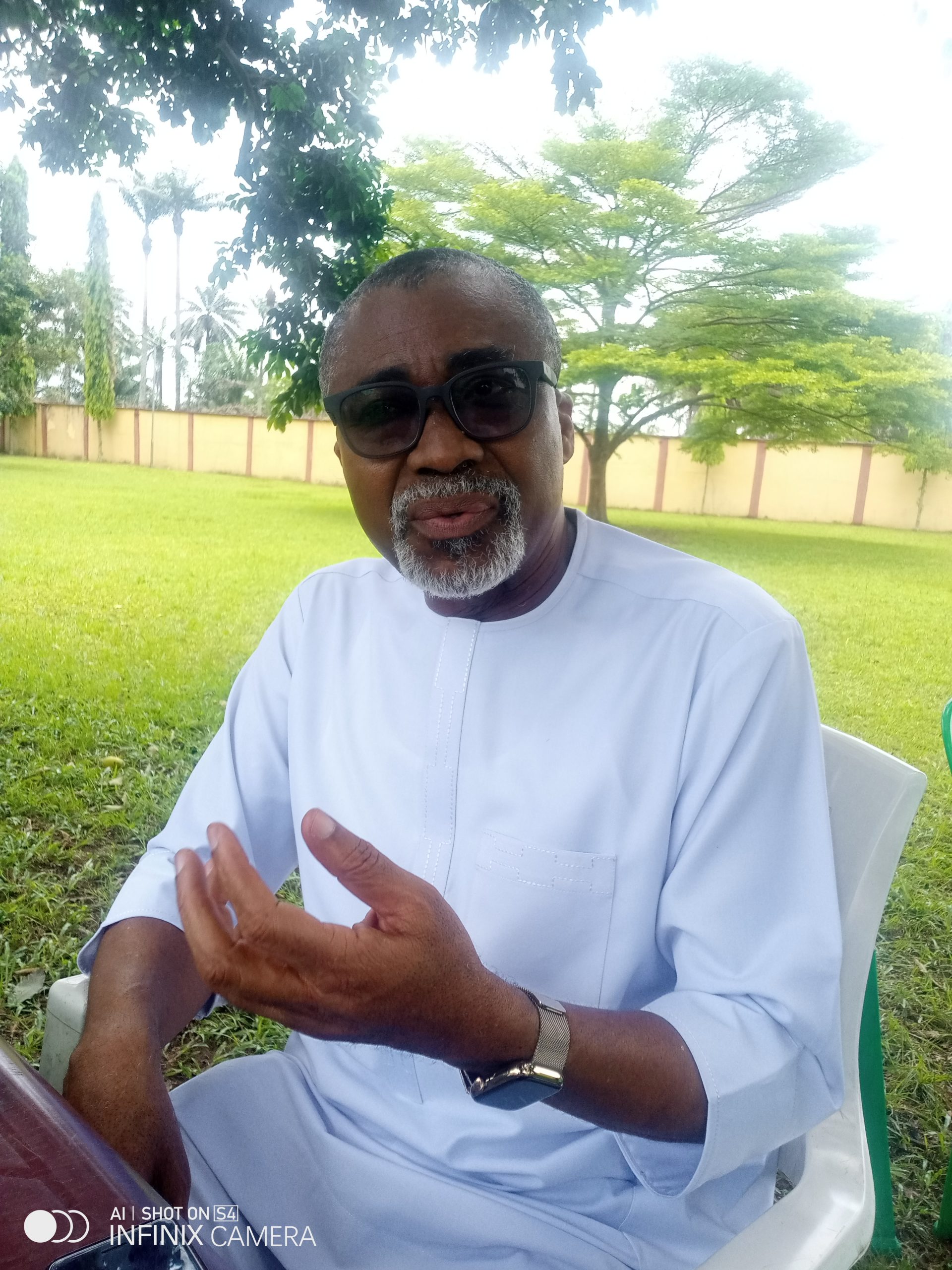
Photo: PBA

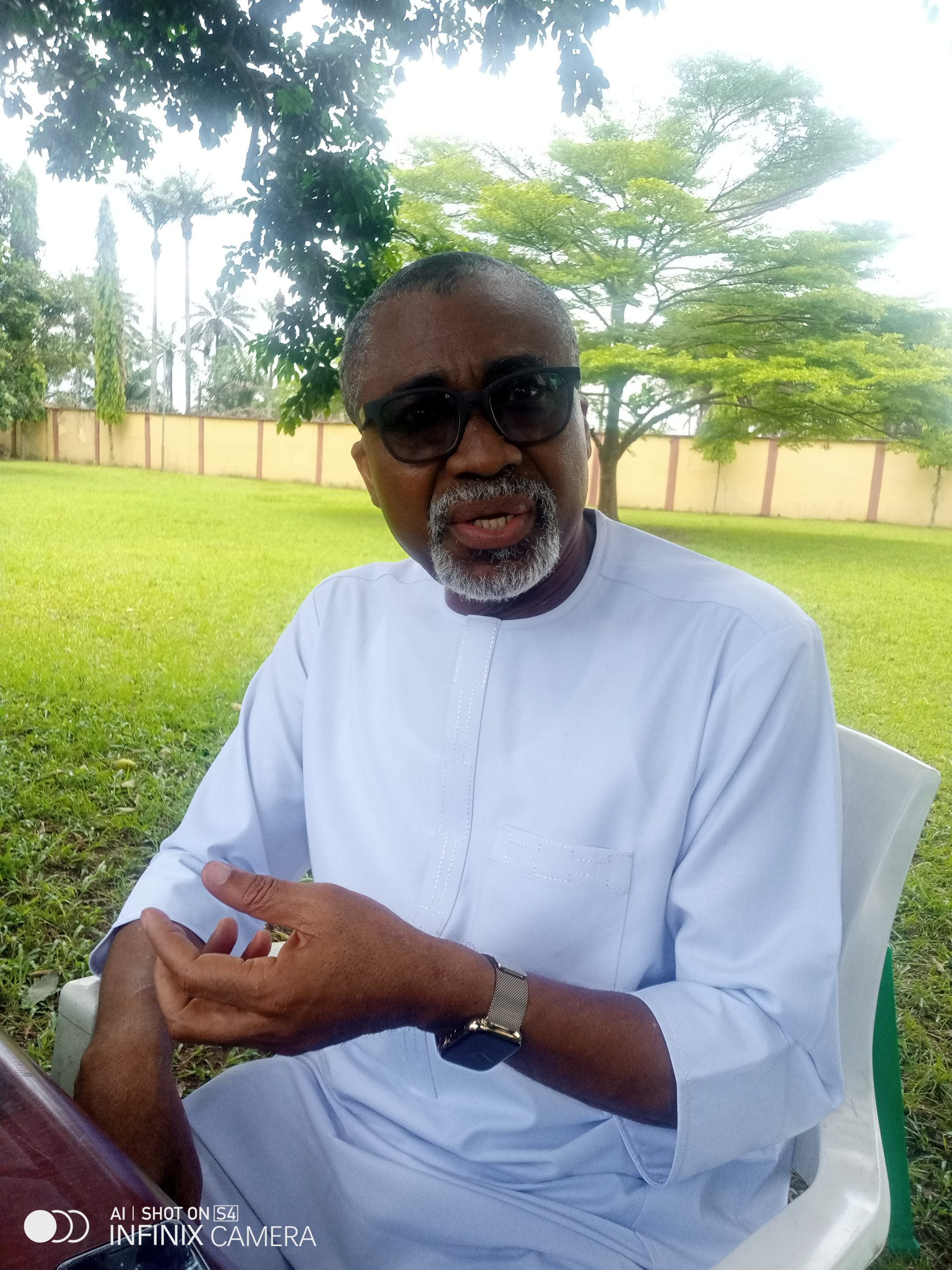


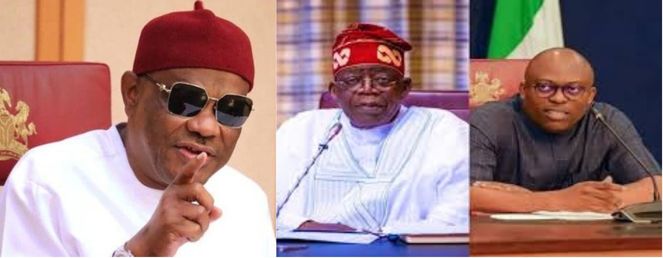
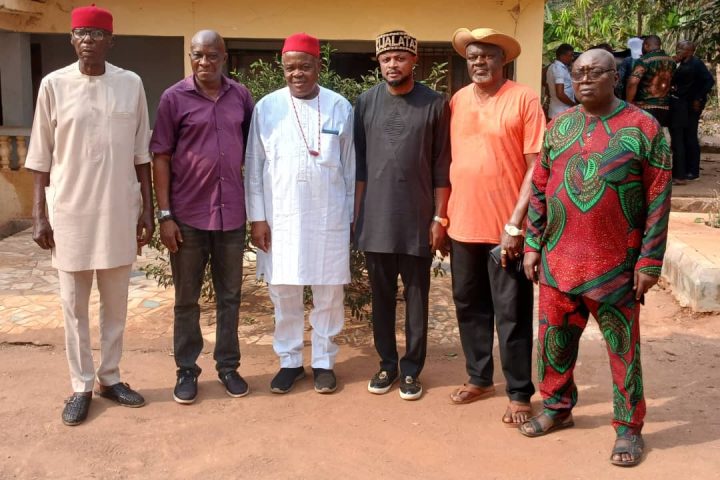
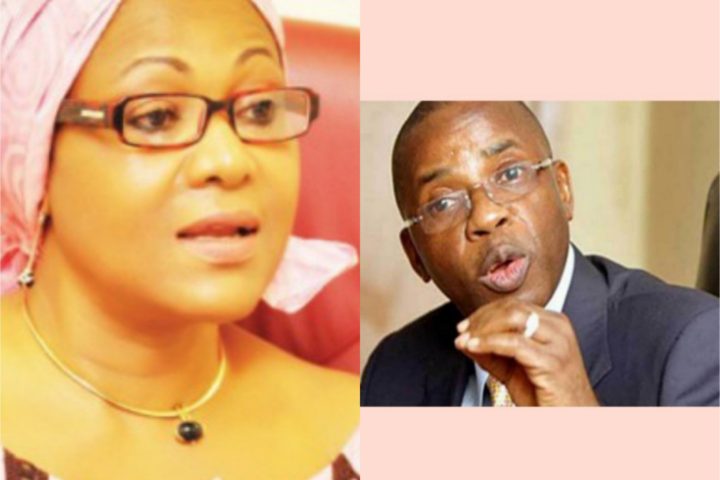
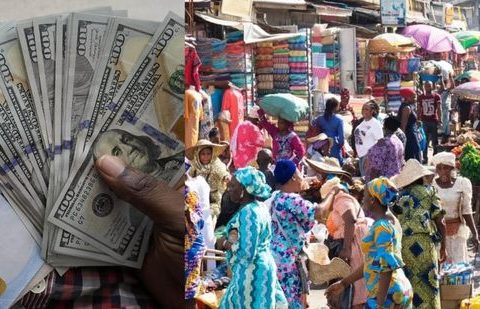
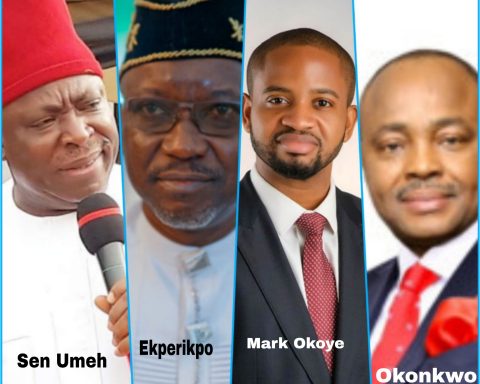

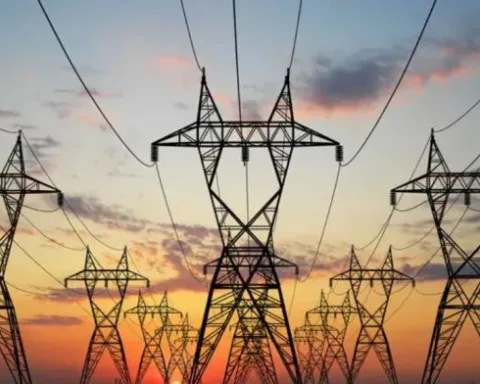
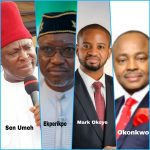

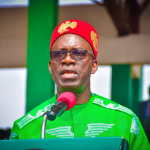


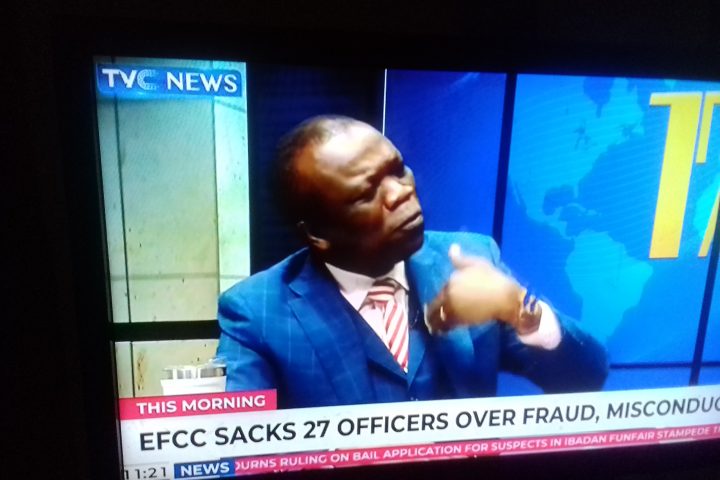

Follow Us